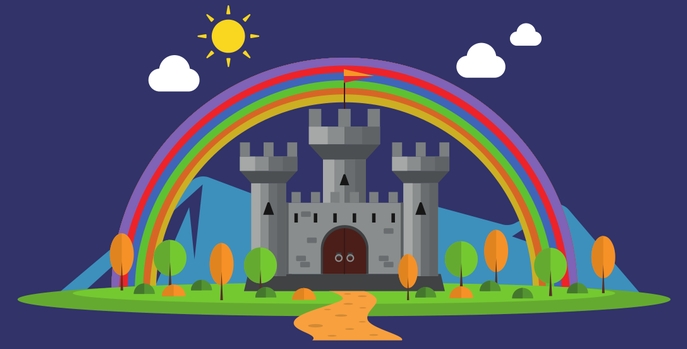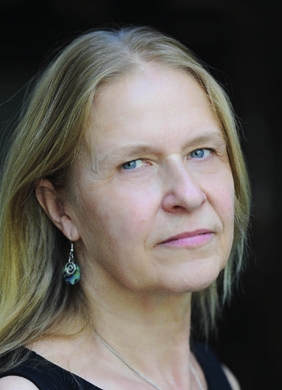‘Fantasy helps children realise that books can be chocolate’

Author Cornelia Funke looks at how fantasy fiction can inspire solid teaching and learning…

I am often asked why I write fantasy instead of realistic prose. Of course, this first of all raises the question – what do we define as reality?
I think working with fantasy in the classroom should start with this question. Is Shakespeare unrealistic because he makes ghosts and witches take the stage? Why does Harry Potter mirror British reality quite brilliantly? Does the Lord of the Rings, born from two World Wars, move people all over the world because it takes us to another world, or because it does, in fact, talk about ours? After all, as Tolkien said, it is all about death.
In my opinion (and I guess most scientists share this belief), the reality of this world and our existence is absolutely fantastic; maybe we always knew this and have therefore tried to make sense of it by using the tools of fantasy since the very beginnings of storytelling.
The fear of the dark becomes so palpable when turned into monsters and things moving in the night. The question of where we come from and where we’re going can be addressed profoundly by meeting ghosts and ghouls. The uniquely human experience of being separated from all other forms of life on this planet can be bridged by imagining to our human skin to turn into fur or feathers, fantasy imitating an old Shaman technique…..
Mature reflection
Humans have always used imagination to understand our existence on this planet, but nowadays it is easily defined as a tool for children and artists; one that shouldn’t be used too much by reasonable grown ups, except to from time to time escape the world and entertain themselves. But what is so wrong with escaping?
I think it was Tolkien who stated that only the prison ward is opposed to such an escape. We may gain strength from it, a freedom of thought that’s impossible while we are trapped in daily routines. There is a deeply political aspect to fantasy, for we won’t try to change this world unless we are able to imagine another reality. One could say that all change starts with fantasy – and there are many interesting aspects that can be discussed in a classroom.
For example, are there two different kinds of fantasy? A reactionary and a rebellious kind? That is certainly true of fairy tales, which so often transport traditional values and fulfil all our wishes for revenge, riches or power with shameless vigour, while at the same time praising the fools and the rebels.
Magic is another interesting aspect of fantasy, feeding into our yearning to have magical abilities. The concept of magic, and how its perception has changed from pagan times to the Potter era would certainly make for a lively discussion in any classroom and suggest many connected themes – what do we want from magic? What if magic existed – would that be a comforting or a worrying thought?
We all use the word quite often, but what do we perceive of as ‘magic’ or ‘magical’? The theme of magic can also bring us to witches and how the history of women has been reflected in fantasy literature – in both reactionary and progressive ways.
Visions and truth
Fantasy can work as a mirror; all imagined worlds are this one. We cannot imagine anything that hasn’t been inspired by the planet we live on, with its endless variety of life forms and landscapes. So how does the mirror work? What do we see in it? Does it show some things more clearly because it makes them look less familiar?
Visual thinking is often underestimated, but frequently found in the symbolic imagery of fantasy, reminding us that one image can often explains complex realities in a far more satisfying way than an abstract description, as it summons layers of subconscious knowledge or emotion.
Fantasy can teach visual thought, and a more playful and wider ranged interpretation of the world. What does this ‘reality’ look like through the eyes of a bird? What does it feel like to have growing roots and branches? Fantasy can make us aware of the fact that the human existence grants us only one, quite limited, perspective, whereas our imagination can widely enhance it by teaching us to shape shift, to time travel, to even pass the borders of death….
And of course, there are always the big questions – what is the purpose of life? Do we survive death? What defines good and evil? Fantasy has always been a very rewarding way to reflect on these questions, be it in myth, fairy tale, literature, music or art – after all, it is a deeply human wish to look past the daily reality that surrounds us, to perceive a deeper, maybe timeless truth.
Oh, and one last thought. Did I mention the fun? We often make our children perceive books the same way as medicine prescribed by teachers and parents. Fantasy helps them realise that books can be chocolate.
Cornelia Funke is the bestselling fantasy author of The Thief Lord, the Inkheart trilogy and the Mirrorworld series; for more information, visit www.corneliafunke.com or follow @corneliafunke











